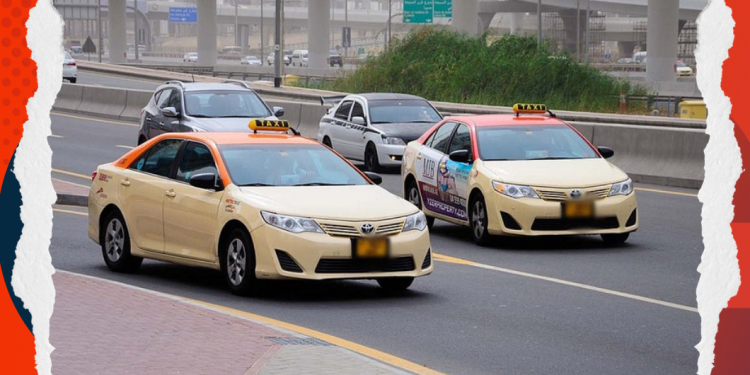Dubai commuters booking taxis through ride-hailing apps now pay more after the Roads and Transport Authority implemented a new fare structure that links prices to demand patterns across different times and days.
The changes, announced on November 6, 2024, affect users of popular apps including Careem (Hala), S’hail, Bolt, Zed, and the DTC Smart App. Street-hail passengers continue using the previous fare system without any modifications.
Minimum App Booking Fee Jumps to AED 13
App users now pay a minimum fare of AED 13 per ride, up from the previous AED 12 rate. This is an 8.3% increase that applies to all app-based bookings regardless of trip distance or duration.
The minimum fare increase affects millions of daily taxi trips in Dubai, where ride-hailing apps have become the preferred booking method for many residents and visitors. Gulf News reports that the new system creates a more flexible, demand-driven pricing model.
Peak Hours Bring Steeper Booking Fees
The RTA introduced time-based booking fees that vary significantly throughout the week:
Monday to Thursday Peak Costs: During morning rush (8am-9:59am) and evening rush (4pm-7:59pm), booking fees reach AED 7.50 plus a AED 5 flagfall charge.
Weekend Premium Rates: Friday evenings see extended peak pricing from 4pm to 9:59pm with the same AED 7.50 booking fee structure. Saturday and Sunday maintain peak rates from 4pm to 11:59pm.
Off-Peak Savings: Riders booking during quieter periods (6am-7:59am and 10am-3:59pm on weekdays) pay just AED 4 in booking fees, offering substantial savings compared to peak times.
Street Taxis Maintain Unchanged Pricing
Passengers who flag down taxis directly from the street continue paying the existing fare structure. Base rates remain at AED 5 during daytime hours (6am-10pm) and AED 5.50 at night, with per-kilometer charges staying between AED 2.14-2.26 depending on monthly fuel adjustments.
The minimum street-hail fare stays at AED 12, making it slightly cheaper than app bookings for short trips. However, Arabian Business notes that app bookings offer convenience features like precise destination setting and cashless payments.
Dynamic Pricing Mirrors Global Transport Trends
Dubai joins major cities worldwide in adopting demand-responsive taxi pricing. The system increases fare costs when demand peaks while offering lower rates during quieter periods to encourage off-peak travel.
This pricing model helps distribute taxi availability more evenly across the city throughout the day. During busy morning and evening commutes, higher booking fees incentivize more drivers to work, improving service availability for passengers willing to pay premium rates.
Airport and Event Location Surcharges Continue
Trips starting from Dubai International Airport maintain a higher flagfall of AED 25, while major event venues like Expo City and Dubai World Trade Centre can see special starting fares reach AED 20-25 during large events.
All taxi rides continue, including standard charges for Salik tolls (AED 4 per gate) and waiting time (AED 0.50 per minute when stationary).
Cost Impact on Daily Commuters
Regular app users booking during peak hours face higher transportation costs under the new system. A typical 20-kilometer ride from Dubai International Airport to Dubai Marina, including toll charges, now costs between AED 60-70 depending on booking time and traffic conditions.
However, passengers who adjust their travel schedules to off-peak periods can achieve savings compared to the previous flat-rate system. Time Out Dubai emphasizes that the changes only affect app bookings, leaving street-hail options as an alternative for cost-conscious passengers.
Smart Mobility Strategy Behind Pricing Changes
The fare restructuring forms part of RTA’s smart mobility initiative that uses data analytics to optimize transport efficiency across Dubai.
The transparent time-based model replaces previous flat surcharges that didn’t reflect actual demand conditions. Passengers now understand exactly when they’ll pay premium rates and can plan accordingly to minimize transportation costs.
The implementation positions Dubai’s taxi services alongside international ride-hailing platforms that have used dynamic pricing for years in cities like London, New York, and Singapore. This alignment helps the emirate maintain its position as a global smart city leader while ensuring sustainable transportation services for its growing population.














